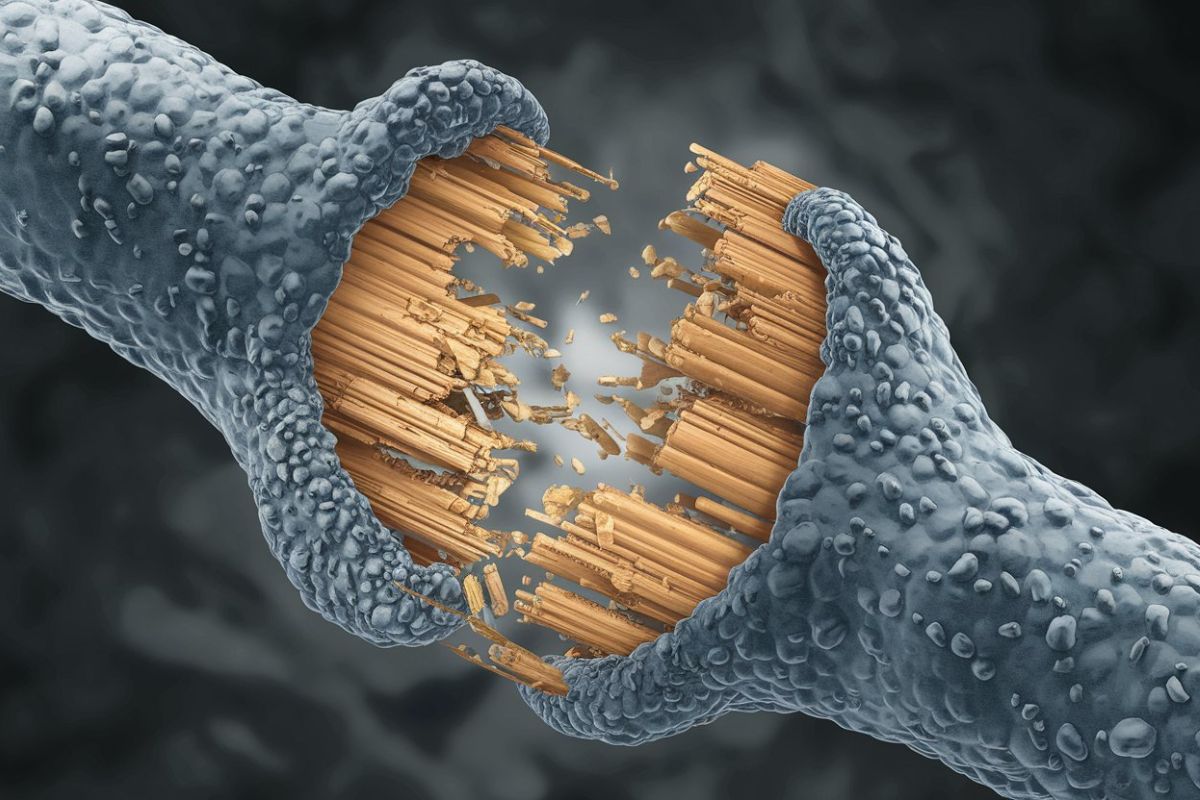
What is cellulase? Cellulase is an enzyme that breaks down cellulose, a complex carbohydrate found in the cell walls of plants. Why is cellulase important? It plays a crucial role in nature by helping decompose plant material, turning it into simpler sugars that organisms can use for energy. Where is cellulase found? This enzyme is produced by fungi, bacteria, and even some animals like termites and ruminants. How does cellulase work? It breaks the bonds in cellulose, making it easier to digest. What are the uses of cellulase? It’s used in biofuel production, food processing, and even in laundry detergents to remove stains. Want to learn more? Keep reading for 50 fascinating facts about cellulase!
Key Takeaways:
- Cellulase, an enzyme found in nature, has diverse uses from breaking down plant material to improving animal digestion. Its potential in biotechnology and environmental sustainability makes it a fascinating subject for future research.
- Cellulase offers health benefits, aids in environmental balance, and has industrial applications. Despite challenges, ongoing research aims to enhance its efficiency and unlock new possibilities for a sustainable future.
What is Cellulase?
Cellulase is an enzyme that breaks down cellulose, a complex carbohydrate found in the cell walls of plants. This enzyme is crucial for various biological processes and industrial applications. Let's dive into some fascinating facts about cellulase.
- Cellulase is produced by fungi, bacteria, and protozoans that digest cellulose.
- It plays a vital role in the decomposition of plant material in nature.
- Without cellulase, the carbon cycle would be disrupted, affecting all life forms.
- Termites rely on cellulase-producing protozoa in their guts to digest wood.
- Ruminant animals like cows have cellulase-producing microbes in their stomachs.
How Does Cellulase Work?
Understanding how cellulase functions can help in appreciating its importance. This enzyme breaks down cellulose into simpler sugars, which can then be used as an energy source.
- Cellulase breaks down cellulose into glucose, cellobiose, and other oligosaccharides.
- It works by hydrolyzing the β-1,4-glycosidic bonds in cellulose.
- The enzyme consists of three main components: endoglucanase, exoglucanase, and β-glucosidase.
- Endoglucanase cuts internal bonds, creating new chain ends.
- Exoglucanase removes cellobiose units from the ends of the cellulose chains.
Industrial Applications of Cellulase
Cellulase has numerous industrial applications, making it a valuable enzyme in various sectors.
- It is used in the textile industry for fabric softening and biopolishing.
- In the paper industry, cellulase helps in deinking recycled paper.
- The enzyme is crucial in the production of biofuels from plant biomass.
- Cellulase is used in the food industry to extract fruit and vegetable juices.
- It aids in the fermentation process in brewing and winemaking.
Medical and Health Benefits of Cellulase
Cellulase also offers several health benefits, making it an essential enzyme in the medical field.
- It helps in the digestion of plant-based foods.
- The enzyme can alleviate symptoms of irritable bowel syndrome (IBS).
- It supports the breakdown of dietary fiber, improving nutrient absorption.
- Cellulase supplements can aid in detoxifying the body by breaking down harmful cellulose.
- It may help in managing conditions like Crohn's disease and ulcerative colitis.
Environmental Impact of Cellulase
Cellulase plays a significant role in maintaining environmental balance by aiding in the decomposition of plant material.
- It helps in composting by breaking down plant waste.
- The enzyme reduces the need for chemical treatments in agriculture.
- It contributes to soil health by decomposing organic matter.
- Cellulase can help in bioremediation by breaking down pollutants.
- It supports sustainable waste management practices.
Cellulase in Animal Nutrition
Animals, especially herbivores, benefit greatly from cellulase in their diet.
- It helps in the digestion of fibrous plant material in herbivores.
- The enzyme improves feed efficiency in livestock.
- Cellulase supplements can enhance the growth rate of farm animals.
- It aids in the production of high-quality silage for animal feed.
- The enzyme reduces methane emissions from ruminants by improving digestion.
Future Prospects of Cellulase Research
Research on cellulase continues to uncover new applications and benefits, promising a bright future for this enzyme.
- Genetic engineering aims to produce more efficient cellulase enzymes.
- Researchers are exploring cellulase for use in biodegradable plastics.
- The enzyme could play a role in developing sustainable bioenergy sources.
- Advances in cellulase research may lead to improved agricultural practices.
- Scientists are investigating its potential in waste-to-energy technologies.
Fun Facts About Cellulase
Let's wrap up with some fun and lesser-known facts about cellulase.
- Cellulase was first discovered in 1897 by French chemist Anselme Payen.
- The enzyme is also found in some marine organisms like sea squirts.
- Certain fungi can produce cellulase at temperatures as high as 80°C.
- Cellulase can be used to create biodegradable detergents.
- The enzyme is sometimes added to animal feed to improve nutrient availability.
Cellulase in Biotechnology
Biotechnology has harnessed the power of cellulase for various innovative applications.
- It is used in the production of bioethanol from agricultural waste.
- The enzyme helps in the creation of bioplastics from plant materials.
- Cellulase is employed in the development of eco-friendly cleaning products.
- It aids in the production of animal-free leather alternatives.
- The enzyme is being explored for use in sustainable textile manufacturing.
Challenges and Limitations of Cellulase
Despite its numerous benefits, cellulase faces certain challenges and limitations.
- The enzyme's activity can be inhibited by the presence of lignin in plant material.
- High production costs limit its widespread use in some industries.
- Cellulase can be sensitive to changes in pH and temperature.
- The enzyme's efficiency can be affected by the presence of other enzymes.
- Ongoing research aims to overcome these challenges and enhance cellulase's potential.
The Power of Cellulase
Cellulase plays a crucial role in breaking down cellulose into simpler sugars. This enzyme is vital for various industries, from biofuel production to improving animal feed digestibility. It helps in textile processing, making fabrics softer and more absorbent. In the food industry, cellulase enhances juice extraction and clarifies beverages. It also aids in waste management by decomposing plant materials.
Understanding cellulase's functions and applications can lead to innovations in sustainability and efficiency. Whether it's producing cleaner energy or creating better products, cellulase is a key player. Its versatility makes it indispensable in modern science and industry.
By harnessing cellulase, we can tackle environmental challenges and improve everyday products. This enzyme's potential is vast, and its impact is already significant. Keep an eye on cellulase; it's shaping the future in more ways than one.
Frequently Asked Questions
Was this page helpful?
Our commitment to delivering trustworthy and engaging content is at the heart of what we do. Each fact on our site is contributed by real users like you, bringing a wealth of diverse insights and information. To ensure the highest standards of accuracy and reliability, our dedicated editors meticulously review each submission. This process guarantees that the facts we share are not only fascinating but also credible. Trust in our commitment to quality and authenticity as you explore and learn with us.


